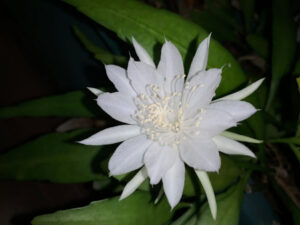Fertilizer is an essential component of gardening, providing the necessary nutrients that plants require for growth and vitality. However, as a gardener, it’s crucial to understand not only how to use fertilizer effectively but also how long it will last and how to store it properly. This article delves into the longevity of fertilizers and offers essential storage tips for gardeners, ensuring that your plants receive the nutrients they need at any time.
Understanding Fertilizer Lifespan
The longevity of fertilizer can vary widely based on the type and formulation. Chemical fertilizers, organic options, granular types, and liquid fertilizers all have different lifespans. A general guideline is that most fertilizers retain their potency for about one to five years if stored correctly. However, many gardeners find themselves asking: how can I tell if my fertilizer is still effective?
To assess the viability of your fertilizer, check for any changes in appearance, texture, or smell. Granular fertilizers should remain dry and crumbly, while liquid fertilizers should maintain their consistency without separation. If you notice clumping in granular fertilizers or an off-putting odor from liquids, it’s best to err on the side of caution and replace the product.
Factors Influencing Fertilizer Longevity
Multiple factors contribute to the longevity of fertilizers, including:
Exposure to Atmospheric Conditions: Fertilizers are sensitive to moisture and heat. High humidity can cause clumping or premature degradation of nutrients, whereas extreme heat can also trigger chemical reactions that diminish potency.
Molecular Composition: The specific nutrients contained within the fertilizer influence its lifespan. For instance, fertilizers high in nitrogen are more prone to volatilization (loss to the atmosphere) than those containing potassium and phosphorus.
Packaging Integrity: Proper packaging plays a vital role. Fertilizers should ideally be kept in their original, unopened packaging. Once opened, they should be transferred to airtight containers to mitigate exposure to air and moisture.
Home Storage Tips for Gardeners
As a gardener, knowing how to store your fertilizer effectively is paramount. The right method helps maintain nutrient integrity and prolongs shelf life.
Choosing the Right Container: Airtight containers made of plastic or glass are ideal for storing granular and powdered fertilizers. For liquid fertilizers, opt for labeled bottles that can be securely sealed. A smart strategy is to label these containers with the nutrient type and purchase date.
Optimal Storage Location: Store fertilizers in a cool, dry place away from direct sunlight. An indoor shed, garage, or basement can provide an environment that reduces the risk of moisture exposure. Ensure this area has a stable temperature, as significant fluctuations can negatively impact fertilizer quality.
Organizing Fertilizer Storage: Maintain an organized storage system. Clearly separate different fertilizer types to avoid any accidental mix-ups. It’s also advisable to periodically check for expiration dates and rotate stock by using older products first.
Handling and Safety Considerations
For optimal safety, always follow handling guidelines provided on the fertilizer packaging. Many fertilizers contain chemicals that can be harmful if inhaled or ingested. When pouring or mixing fertilizers, wear protective gear such as gloves and masks.
It is also crucial to keep fertilizers out of reach of pets and children. Create a designated storage area that is locked or secured, ensuring no accidental exposure occurs.
Maintaining Fertilizer Quality Over Time
Even with perfect storage conditions, the efficacy of fertilizers can diminish over time. To combat this, avoid buying in bulk if you do not plan on using it soon. Buying smaller quantities allows for fresher products that are more likely to be effective.
For organic fertilizers, consider the possibility of biological activity degrading nutrient levels. In some cases, it may help to test soil nutrient content annually to determine if your fertilizers are still providing the needed nutrients.
Utilizing Alternative Nutrient Sources
If you notice your fertilizer has lost its potency or it’s past its prime, consider naturally enriching your soil using compost, worm castings, or mulch. These alternatives can provide similar benefits without the risk associated with degraded fertilizers. They not only nurture your plants but also contribute to soil health and biodiversity.
Conclusion: Investing in Smart Storage Practices
Understanding how long fertilizers last and implementing savvy storage techniques is crucial for every gardener wanting to promote a thriving garden. By adhering to simple guidelines, you can enhance the longevity of your fertilizers, ensure your plants receive optimal nutrition, and ultimately yield a bountiful harvest. As you embark on your gardening endeavors, take these tips to heart and enjoy the rewards of a carefully nurtured environment.



Leave a Comment